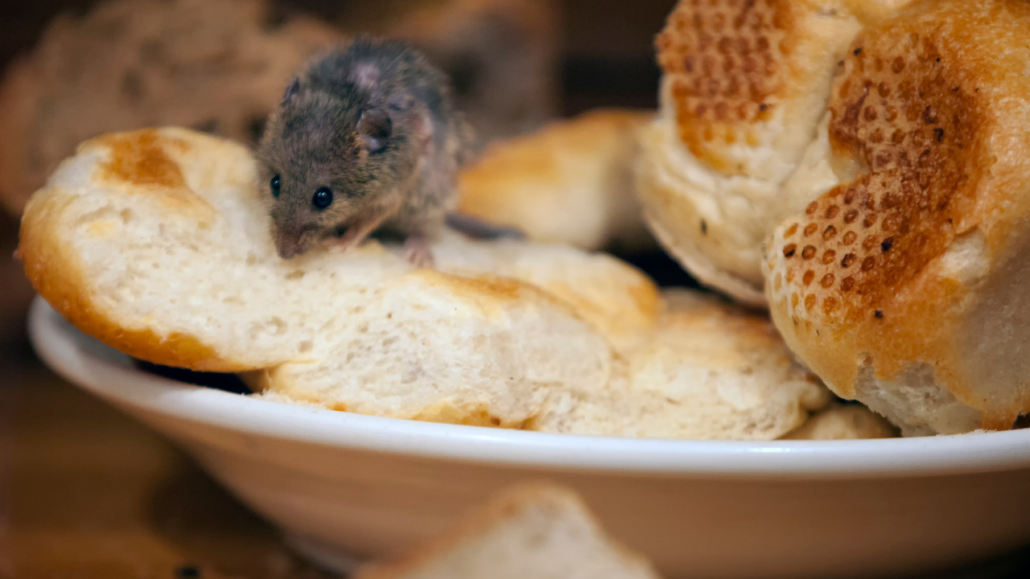Mouse control is vital in the food industry
We can’t help with a virus, at least not directly, but as we all look towards getting back to a normal working routine, any business linked to food – growing, transporting, storing, distributing, preparation, or for sale on or off premises – needs to be acutely alert for mice.
With footfall down over a number of weeks and months now… well, you know the saying: when the ‘cats’ been away, the mice have been out to play.
The Food Safety Act 1990 and The General Food Regulations 2004 (as amended) provide the framework for all food legislation in Great Britain and enforces certain provisions of Regulation (EC) 178/2002 in Scotland and Wales, which means that any business that provides food that is not of the nature or substance or quality demanded by the purchaser, “shall be guilty of an offence”.
That means penalties and repercussions – some that could close your business for good.
Your responsibilities for rodent control
So what should you be doing?
The legal requirement is for any business handling food for sale to the public to ensure that adequate procedures are in place for controlling pests.
Controlling pests is not a task that can be completed only once, as you plan to reopen. You need to have a regular system in place to monitor and combat any possible infestation. Check for yourself with the guidance provided by Food Standards Scotland.
Daily checklist
Our suggested checklist for daily inspection includes:
- Look for smears left on pipes or possible entry points, and on “runs”. These are left by the natural oil in the rodent’s skin rubbing off as they pass
- Rodent tracks in dusty areas, especially in storage rooms
- Any gnawed material visible
- Any teeth marks on food or wooden door frames or skirting boards
- Any small cracks in skirting. These can be enough to let mice enter as mice are usually less than two inches long and weigh about an ounce; but an active burrow’s entrance will be free from cobwebs and debris
- An area that smells stale, or of urine
- Any droppings in or around your premises must be investigated immediately.
Rodents carry disease
Rodents are such a serious issue because they carry a host of diseases, such as listeriosis, salmonella and others. Their droppings, urine and hair can all directly contaminate food and drink – but they also carry fleas, which themselves can transmit disease to humans if they bite. Forget ‘Ratatouille’, there’s never a reason not to act immediately if you think you’ve seen evidence of mice or rats in or near your premises.
Both rats and mice are excellent climbers, so check out cracks and gaps high up walls and not just around the edge of the floor.
If you see any of the signs above, call us – protect your business and your customers’ health
We provide pro-active pest control to many restaurants, hotels, shops and food production companies, both large and small.
You can practice good hygiene policies to eliminate easy access to the food, water, and shelter that rats and mice are searching for. If they don’t find them from you, they’ll move on – so that’s the best and most important thing to check regularly.
Other checks for rodent control
You can also be alert and check every few days for:
- Weeds around your premises, clear these to reduce shelter areas
- Tree limbs near your roof, get them cut at least 6 feet away
- Holes and cracks inside or outside: block any you find with wire mesh while you get a more permanent fix planned
Daily routines should include:
- Removing food from counters overnight
- Storing all ingredients in heavy plastic or glass containers
- Not throwing away fruit or vegetable peelings anywhere other than in approved Council refuse bins
- Storing garbage in metal or heavy-duty plastic containers and making sure lids are closed tightly.
Follow these simple steps, and call us as soon as you see any of the indicators we’ve listed, and we’ll keep you pest free. Better still, talk to us about scheduled inspections. That way we can help ensure your premises are always appropriately protected, meaning you have one less thing to worry about.

